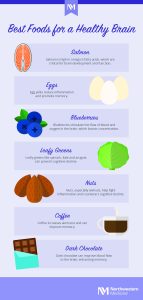Healthy Heart, Advice from Healthy Heart Scientists: Maintain a healthy lifestyle to improve heart health. Implementing certain habits can help promote a strong and resilient heart.
Understanding The Role Of Leading Heart Specialists
Leading heart specialists play a crucial role in promoting a healthy heart. Benefit from the advice of these expert scientists to maintain optimal cardiovascular well-being.
Understanding the Role of Leading Heart Specialists The impact of heart health on overall well-being Your heart is an incredibly vital organ that plays a crucial role in your overall well-being. A healthy heart ensures that oxygen and nutrients are efficiently distributed to all parts of your body, allowing everything to function optimally. On the other hand, poor heart health can lead to serious complications and even life-threatening conditions. Understanding the impact of heart health on your overall well-being is the first step towards maintaining a healthy heart. The significance of seeking advice from top heart specialists When it comes to matters of the heart, it’s essential to seek advice from the best. Top heart specialists have dedicated their lives to studying and understanding the complexities of the cardiovascular system. Their expertise and guidance can make a significant difference in maintaining and improving heart health. Here are a few reasons why seeking advice from top heart specialists is crucial:
1. Specialized knowledge: Leading heart specialists possess extensive knowledge when it comes to cardiovascular health. Their specialized expertise enables them to diagnose and treat a wide range of heart conditions with precision.
2. Advanced diagnostic techniques: Top heart specialists have access to state-of-the-art diagnostic techniques that allow for accurate assessment of heart health. These advanced tools help them identify potential problems even before they manifest, enabling proactive measures to be taken.
3. Tailored treatment plans: Each individual’s heart health needs are different, and top heart specialists understand this. They create personalized treatment plans that address specific concerns, ensuring the best possible outcomes for their patients.
4. Cutting-edge research and innovation: Leading heart specialists are at the forefront of groundbreaking research and advancements in the field of cardiology. By staying up-to-date with the latest discoveries and innovations, they can provide the most effective and cutting-edge treatments.
5. Comprehensive care: Seeking advice from top heart specialists ensures comprehensive care that goes beyond the treatment of immediate symptoms. They also focus on preventive measures, lifestyle modifications, and long-term management strategies to ensure optimal heart health. In conclusion, understanding the role of leading heart specialists is crucial for maintaining a healthy heart. Their specialized knowledge, advanced diagnostic techniques, tailored treatment plans, commitment to research, and comprehensive care approach make them invaluable in the pursuit of a healthy heart.
Risk Factors For Heart Disease: Identifying The Culprits
Risk factors for heart disease are crucial for identifying the culprits. With advice from healthy heart scientists, you can maintain a healthy heart and minimize potential risks.
Heart disease, one of the leading causes of death worldwide, can often be attributed to a combination of genetic predispositions and unhealthy lifestyle choices. By understanding and identifying these risk factors, we can take proactive steps towards heart-healthy living. In this article, we delve into the two primary culprits behind heart disease: unhealthy lifestyle choices and genetic predispositions.
Unhealthy Lifestyle Choices And Their Impact On Heart Health
In today’s fast-paced world, it’s easy to neglect our cardiovascular health. Unhealthy lifestyle choices have a significant impact on heart health, increasing the risk of developing heart disease. Let’s take a closer look at some of these lifestyle factors:
- Poor diet: A diet rich in processed foods, saturated fats, and cholesterol can contribute to high blood pressure, obesity, and high cholesterol levels, all of which are risk factors for heart disease.
- Sedentary lifestyle: Leading a sedentary lifestyle devoid of physical activity weakens the cardiovascular system. Regular exercise not only strengthens the heart but also helps regulate blood pressure and maintain a healthy weight.
- Smoking: Smoking damages the blood vessels, reduces oxygen levels in the blood, and increases the risk of atherosclerosis. Quitting smoking is one of the most effective ways to protect your heart health.
- Excessive alcohol consumption: Consuming alcohol in moderation can have some benefits for heart health. However, excessive drinking can lead to high blood pressure, obesity, and increased risk of heart disease.
- Stress: Chronic stress can raise blood pressure and contribute to unhealthy coping behaviors such as overeating, smoking, or excessive alcohol consumption, all of which impact heart health.
By making small, positive changes to our lifestyle choices, such as adopting a balanced diet, staying active, quitting smoking, moderating alcohol intake, and managing stress, we can significantly reduce the risk of heart disease.
Genetic Predispositions And Their Role In Heart Disease
In addition to lifestyle choices, genetic predispositions can play a crucial role in heart disease. While we cannot change our genes, being aware of our genetic risk factors can empower us to take proactive steps towards prevention and early detection. Here are a few genetic factors that contribute to heart disease:
| Genetic Factor | Impact on Heart Disease Risk |
|---|---|
| Family history: | A family history of heart disease increases the likelihood of developing cardiovascular problems. Understanding and sharing this information with your healthcare provider can lead to appropriate screening and preventive strategies. |
| Genetic mutations: | Certain genetic mutations, such as familial hypercholesterolemia, can cause elevated cholesterol levels and increase the risk of heart disease. Identifying these mutations through genetic testing can aid in early intervention and treatment. |
By recognizing the role of genetics in heart disease, individuals with higher genetic risk can work closely with healthcare professionals to develop personalized prevention plans, including regular monitoring, lifestyle modifications, and potentially, medication.
While addressing the risk factors for heart disease may seem daunting, it’s essential to remember that even small changes can have a significant impact on cardiovascular health. By embracing a heart-healthy lifestyle and being proactive in managing genetic predispositions, we can safeguard our heart health and pave the way for a long and healthy life.
Diet And Nutrition: Nourishing Your Heart
When it comes to maintaining a healthy heart, one cannot underestimate the power of a well-balanced diet and proper nutrition. Scientists studying heart health have unanimously agreed that what you put on your plate can play a crucial role in supporting heart vitality. By incorporating heart-healthy nutrients into your daily meals, you can take significant strides towards keeping your heart in top shape and reducing the risk of heart diseases.
The Role Of A Balanced Diet In Maintaining Heart Vitality

A balanced diet provides your body with the necessary nutrients it needs to function optimally, and this principle holds true for maintaining heart vitality as well. By striking a balance between different food groups and consuming a variety of nutrients, you enable your body to thrive, and your heart benefits immensely in the process.
A balanced diet for a healthy heart should be rich in:
- Fruits and vegetables: These natural powerhouses are packed with vitamins, minerals, and beneficial antioxidants that protect your heart from damage caused by free radicals. Aim to incorporate a colorful variety of fruits and vegetables in your meals to ensure a diverse array of heart-healthy nutrients.
- Whole grains: Opt for whole grains such as brown rice, whole wheat bread, and oats, which provide fiber and essential nutrients. Fiber helps to lower cholesterol levels and maintain healthy blood pressure, reducing the risk of heart diseases.
- Lean proteins: Choose lean sources of protein, such as skinless poultry, fish, legumes, and nuts. These protein-rich foods are low in saturated fats, which can contribute to high cholesterol levels when consumed in excess.
- Healthy fats: Incorporate sources of healthy fats, such as avocados, olive oil, nuts, and seeds into your diet. These fats contain omega-3 fatty acids, which promote heart health by reducing inflammation and improving cholesterol levels.
Essential Nutrients For Heart Health
When it comes to nourishing your heart, certain nutrients deserve special attention due to their vital role in maintaining cardiovascular health.
| Nutrient | Food Sources |
|---|---|
| Omega-3 fatty acids | Fatty fish (salmon, mackerel, sardines), flaxseeds, chia seeds, walnuts |
| Antioxidants (Vitamin C, E, and beta-carotene) | Citrus fruits, berries, leafy greens, nuts, seeds, whole grains |
| Fiber | Whole grains, legumes, fruits, vegetables |
| Potassium | Bananas, oranges, tomatoes, spinach, sweet potatoes |
| Magnesium | Dark chocolate, almonds, spinach, avocados, legumes |
By ensuring these essential nutrients are included in your diet, you provide your heart with the necessary tools to stay strong and resilient against cardiovascular diseases.
Remember, nourishing your heart through diet and nutrition is an ongoing journey. Consistency and mindful choices will pave the way for a healthy heart and a vibrant life.
Exercise For Heart Health: Finding The Right Regimen
When it comes to keeping your heart in tip-top shape, exercise is essential. Regular physical activity not only helps to improve heart function but also reduces the risk of developing heart disease. But where do you start? How do you find the right exercise regimen that will benefit your heart the most? In this article, we’ll explore the benefits of physical activity on heart function and share expert advice on how to build a sustainable exercise routine.
The Benefits Of Physical Activity On Heart Function
Physical activity has a profound impact on heart health. Engaging in regular exercise helps to:
- Strengthen your heart muscle: When you exercise, your heart works harder to pump blood throughout your body. Over time, this strengthens the heart muscle, making it more efficient at pumping blood.
- Improve blood flow: Regular physical activity helps to open up the blood vessels, promoting better circulation. This ensures that oxygen and nutrients are delivered more efficiently to the heart muscle.
- Lower blood pressure: Exercise has been shown to reduce high blood pressure, a major risk factor for heart disease. By keeping blood pressure in a healthy range, you can significantly improve your heart health.
- Reduce plaque buildup: Physical activity helps to increase the levels of HDL (good) cholesterol while lowering LDL (bad) cholesterol. This can prevent the buildup of plaque in the arteries, reducing the risk of heart attack and stroke.
- Manage weight: Regular exercise plays a crucial role in weight management. Maintaining a healthy weight is important for heart health, as excess weight puts extra strain on the heart.
Building A Sustainable Exercise Routine
Now that you understand the benefits of physical activity on heart function, it’s time to build a sustainable exercise routine. Here are some tips from healthy heart scientists:
- Start slow and gradually increase intensity: It’s important to give your body time to adjust to exercise. Begin with low-intensity activities, such as walking or swimming, and gradually increase the duration and intensity over time. Aim for at least 150 minutes of moderate-intensity aerobic exercise per week.
- Find activities you enjoy: Exercise doesn’t have to be a chore. Choose activities that you enjoy, whether it’s dancing, cycling, or playing a sport. When you enjoy what you’re doing, you’re more likely to stick with it.
- Make it a habit: Consistency is key when it comes to reaping the benefits of exercise. Find a time of day that works best for you and make it a regular part of your routine. Consider scheduling your workout sessions in advance to help you stay on track.
- Include both aerobic and strength training: While aerobic exercise is great for heart health, don’t forget about strength training. Incorporating resistance exercises, such as lifting weights or using resistance bands, helps to build muscle, improve metabolism, and enhance overall cardiovascular fitness.
- Listen to your body: It’s important to know your limits and listen to your body. If you experience any pain or discomfort during exercise, ease up or stop and consult a healthcare professional.
By following these tips and staying committed to your exercise routine, you can improve your heart health and enjoy the many benefits that come with it. Remember, every step counts, and your heart will thank you for it!
Stress Management: Keeping A Calm And Healthy Heart

When it comes to heart health, keeping stress in check is crucial. The relationship between stress and heart health is undeniable, and it’s important to understand how stress can impact our hearts negatively. Thankfully, there are effective strategies for managing stress that can help us maintain a calm and healthy heart.
The Relationship Between Stress And Heart Health
Stress can have a profound impact on our cardiovascular system. When we experience stress, our bodies release stress hormones like cortisol, which can raise blood pressure and increase the heart rate. This can put additional strain on the heart and increase the risk of heart problems.
In addition to the physiological effects, stress can also lead to unhealthy coping mechanisms such as emotional eating, smoking, or excessive alcohol consumption. These behaviors can further contribute to heart disease and other cardiovascular issues.
Effective Strategies For Managing Stress
Managing stress effectively is essential for maintaining a healthy heart. Here are some proven strategies that can help:
- Practice relaxation techniques: Engaging in activities like deep breathing exercises, meditation, or yoga can help reduce stress levels and promote overall feelings of calmness. These techniques can help slow down the heart rate and lower blood pressure.
- Stay physically active: Regular exercise is not just beneficial for our physical well-being, but it can also have a positive impact on our mental health. Engaging in physical activities releases endorphins, which are known as “feel-good” hormones, helping to alleviate stress and anxiety.
- Adopt a healthy lifestyle: Eating a balanced diet, getting enough sleep, and avoiding excessive caffeine and alcohol can all contribute to stress reduction and improved heart health. It’s important to prioritize self-care and make time for activities that bring joy and relaxation.
- Seek social support: Sharing our feelings and concerns with trusted family members, friends, or professional counselors can help lighten the emotional burden. Having a strong support system can provide comfort and reassurance during stressful times.
- Manage time effectively: Learning how to prioritize tasks, set realistic goals, and delegate when necessary can help reduce stress levels. It’s important to find a healthy work-life balance and avoid taking on too many responsibilities.
In conclusion, managing stress is vital for maintaining a calm and healthy heart. By understanding the relationship between stress and heart health and implementing effective strategies for stress management, we can nurture our hearts and improve our overall well-being.
Sleep And Heart Health: Unlocking The Restorative Power
A good night’s sleep is essential not just for our overall well-being, but also for maintaining a healthy heart. When we sleep, our body gets a chance to rest, rejuvenate, and repair itself. However, many of us underestimate the importance of quality sleep for heart vitality. Numerous studies conducted by leading heart scientists have shown that inadequate sleep can have detrimental effects on cardiovascular health. In this article, we will explore the significance of quality sleep for our heart and provide some tips to improve sleep hygiene.
The Importance Of Quality Sleep For Heart Vitality
Quality sleep is not just about the number of hours we spend in bed, but also about the uninterrupted, restful sleep that allows our body to go through its natural sleep cycles. During deep sleep, our heart rate and blood pressure decrease, giving the cardiovascular system a much-needed break. This restorative phase of sleep plays a crucial role in maintaining a healthy heart by reducing the workload on the cardiovascular system.
Furthermore, research has found that poor sleep habits, such as frequent nighttime awakenings or sleep disorders like sleep apnea, can lead to an increased risk of developing various heart conditions, including hypertension, heart disease, and stroke. Lack of quality sleep affects our body’s ability to regulate stress hormones, which can further contribute to cardiovascular problems.
Tips For Improving Sleep Hygiene
To ensure a good night’s sleep and promote heart health, it is essential to prioritize sleep hygiene. Here are some tips recommended by heart health professionals:
| Tip | Description |
|---|---|
| Stick to a consistent sleep schedule | Go to bed and wake up at the same time every day, even on weekends. This helps regulate your body’s internal clock. |
| Create a relaxing bedtime routine | Engage in activities that promote relaxation, such as reading a book, taking a warm bath, or practicing mindfulness meditation. |
| Create a sleep-friendly environment | Make sure your bedroom is dark, quiet, and at a comfortable temperature. Consider using earplugs, eye shades, or white noise machines if necessary. |
| Avoid stimulants | Avoid consuming caffeine, nicotine, and alcohol close to bedtime, as they can interfere with your ability to fall asleep and stay asleep. |
| Limit screen time before bed | Avoid using electronic devices, such as smartphones and tablets, for at least an hour before bedtime. The blue light emitted by these devices can disrupt your sleep-wake cycle. |
| Exercise regularly | Engage in regular physical activity, but try to finish exercising at least a few hours before bedtime to allow your body to wind down. |
| Manage stress | Find healthy ways to manage stress, such as practicing relaxation techniques or engaging in activities you enjoy. Chronic stress can interfere with sleep quality. |
By incorporating these habits into your daily routine, you can improve your sleep hygiene and unlock the restorative power of quality sleep. Remember, a well-rested heart is a healthy heart!
Breaking Bad Habits: Lifestyle Changes For A Stronger Heart
When it comes to maintaining a healthy heart, making lifestyle changes is often the key. Breaking bad habits such as smoking and excessive alcohol consumption can significantly improve your heart health and reduce the risk of heart disease. In this article, we’ll delve into the impact of these habits on your heart health and provide strategies for overcoming them.
The Impact Of Smoking And Excessive Alcohol Consumption On Heart Health
Smoking and excessive alcohol consumption are two common habits that can have detrimental effects on your heart health. Let’s take a closer look at each:
Smoking: A Major Threat To Heart Health
Smoking is one of the leading causes of heart disease. The toxic chemicals present in cigarettes can damage the lining of your arteries, causing them to become narrower and less flexible. This makes it harder for blood to flow through your vessels, leading to an increased risk of heart attacks and strokes. Even secondhand smoke exposure can be harmful to your heart.
Furthermore, smoking raises your blood pressure and heart rate, putting extra strain on your cardiovascular system. It also increases the levels of harmful cholesterol in your blood, making it more likely for plaque to build up in your arteries.
Breaking free from smoking is not easy, but it’s essential to improve your heart health. Seek support from healthcare professionals, join smoking cessation programs, and consider using nicotine replacement therapies to help you quit. Remember, the sooner you quit smoking, the sooner your heart can begin to heal.
Excessive Alcohol Consumption: Knowing Your Limits
While moderate alcohol consumption in moderation may have some cardiovascular benefits, excessive drinking can harm your heart. Regularly consuming large amounts of alcohol can lead to high blood pressure, irregular heart rhythms, and an increased risk of heart failure.
Alcohol can also contribute to weight gain, especially when consumed in the form of sugary cocktails or beers. Excess weight places additional strain on your heart and increases the likelihood of developing heart disease.
To protect your heart, it’s crucial to know your limits and drink in moderation. Women should aim for no more than one alcoholic beverage per day, while men should limit themselves to no more than two drinks. If you find it challenging to cut back, seek support from healthcare professionals or consider joining support groups to help you make healthier choices.
To overcome unhealthy habits and improve heart health, try incorporating the following strategies into your daily routine:
- Set clear goals: Define specific, achievable goals that will help you break your bad habits. Write them down and track your progress to stay motivated.
- Find healthy alternatives: Substitute your unhealthy habits with healthier alternatives. For example, if you smoke when you’re stressed, try exercising or practicing relaxation techniques instead.
- Surround yourself with support: Seek assistance from friends, family, or support groups. Having a strong support system can make it easier to overcome challenging moments.
- Stay accountable: Hold yourself accountable for your actions. Keep a journal, use a mobile app, or find a buddy with whom you can share your progress.
- Practice stress management: Find healthy ways to manage stress, such as exercising, meditating, or engaging in hobbies that bring you joy.
- Reward yourself: Celebrate your milestones and success along the way. Treat yourself to something enjoyable that doesn’t conflict with your heart-healthy lifestyle.
Remember, breaking bad habits takes time and effort. Be patient with yourself and embrace the positive changes you make for a stronger and healthier heart.
Regular Check-ups: The Key To Identifying And Preventing Heart Disease

As the saying goes, prevention is better than cure. This holds especially true when it comes to maintaining a healthy heart. To ensure that your heart is in its best shape, it is crucial to prioritize regular screenings and check-ups. By making these check-ups a part of your routine, you can actively monitor your heart health, detect any potential issues early on, and take the necessary steps to prevent heart disease.
Understanding The Importance Of Regular Screenings And Check-ups
Regular screenings and check-ups serve as a proactive approach to maintain a healthy heart. These appointments allow healthcare professionals to assess your overall cardiovascular health, identify any risk factors, and catch signs of heart disease before they escalate. By investing time into regular screenings, you are taking a preventative stance towards your heart health, equipping yourself with the knowledge and guidance needed to make informed decisions.
Early Detection And Prevention Of Heart Disease
Early detection can make all the difference when it comes to heart disease. Through regular screenings and check-ups, healthcare professionals are able to identify warning signs and risk factors that put you at a higher risk. By catching these issues early, you have the chance to modify your lifestyle, implement preventive measures, and potentially avoid the development of heart disease altogether. Remember, prevention is key, and regular check-ups are an essential part of maintaining a healthy heart.
During your regular check-ups, your healthcare provider may perform various tests and examinations to evaluate your heart health. These can include:
- Blood pressure measurement: Tracking your blood pressure is vital as high blood pressure can strain the heart and increase the risk of heart disease.
- Cholesterol level testing: High cholesterol levels are a major risk factor for heart disease. Regular testing helps identify any imbalances and enables you to make necessary dietary and lifestyle changes.
- Electrocardiogram (ECG): This test checks the electrical activity of your heart to detect irregular heartbeats or signs of damage.
- Stress tests: These assess how your heart performs under physical activity, enabling healthcare professionals to identify any abnormalities or reduced blood flow.
By attending regular check-ups, you are prioritizing your heart health and giving yourself the best possible chance to prevent heart disease. Remember, prevention and early detection go hand in hand when it comes to maintaining a healthy heart. Empower yourself with the knowledge and peace of mind that regular check-ups bring, knowing that you are taking proactive steps towards a healthy and thriving heart.
Medications And Treatments: Tools For Heart Vitality
When it comes to maintaining a healthy heart, there is a lot of emphasis placed on lifestyle changes such as exercise and a wholesome diet. While these habits are undoubtedly important, there are situations where medications and innovative treatments become essential tools in ensuring heart vitality. In this article, we will explore the common medications prescribed for heart health as well as the cutting-edge treatment options available for individuals with heart disease.
Common Medications Prescribed For Heart Health
Medications play a crucial role in managing various heart conditions and helping individuals maintain a healthy heart. Here are some commonly prescribed medications:
| Medication | Purpose |
|---|---|
| Statins | To lower cholesterol levels and reduce the risk of heart disease. |
| Beta-Blockers | To lower blood pressure and heart rate, reducing the workload on the heart. |
| Antiplatelet Drugs | To prevent blood clots from forming, reducing the risk of heart attack or stroke. |
| Diuretics | To help the body eliminate excess fluid, easing the strain on the heart. |
| ACE Inhibitors | To relax blood vessels, lowering blood pressure and reducing the workload on the heart. |
It is important to note that these medications should only be taken under the guidance and prescription of a healthcare professional. Each individual’s condition is unique, and the dosage and specific medication may vary based on their specific needs.
Innovative Treatment Options For Heart Disease
Advancements in medical technology have paved the way for innovative treatment options for individuals with heart disease. These treatments go beyond medications and can provide individuals with a renewed lease on life. Here are some of the cutting-edge treatment options available:
- Percutaneous Coronary Intervention (PCI): Also known as angioplasty, this minimally invasive procedure uses a catheter to open blocked or narrowed blood vessels, improving blood flow to the heart.
- Cardiac Rehabilitation: This structured program combines exercise, education, and counseling to help individuals recover from a heart attack, heart surgery, or other cardiac procedures.
- Implantable Devices: Devices such as pacemakers and implantable cardioverter-defibrillators (ICDs) can help regulate heart rhythm and prevent sudden cardiac arrest.
- Heart Transplantation: In severe cases, a heart transplant may be the best option for individuals with end-stage heart failure. This life-saving procedure replaces a failing heart with a healthy donor heart.
These innovative treatment options are revolutionizing the way heart disease is managed and are providing new hope to individuals who may have once thought their situation was dire. Consulting with a healthcare professional is crucial to determine the most suitable treatment plan based on each individual’s specific condition.
Healthy Heart Habits: Lifestyle Tips From Heart Specialists
When it comes to maintaining a healthy heart, who better to turn to than heart specialists? With their vast knowledge and expertise, these scientists have provided valuable advice on incorporating heart-healthy habits into our daily lives. In this article, we will explore the expert advice and lifestyle tips suggested by these heart specialists that can help us achieve optimal heart health and reduce the risk of cardiovascular diseases.
Expert Advice On Maintaining A Healthy Heart
Expert scientists specializing in heart health have emphasized the significance of adopting certain habits that can lead to a healthier heart. By following their advice, we not only enhance our cardiovascular well-being but also improve our overall quality of life.
Incorporating Heart-healthy Habits Into Daily Life
Heart specialists encourage us to make some simple yet impactful changes in our daily routine to promote a heart-healthy lifestyle. By incorporating these habits into our lives, we can take proactive steps towards a stronger and more resilient heart. Let us explore some of these habits in more detail:
The Power Of A Balanced Diet
A heart-healthy diet is a cornerstone of maintaining cardiovascular wellness. Our heart specialists unanimously recommend incorporating nutrient-rich foods that provide essential vitamins, minerals, and antioxidants. Fill your plate with a colorful array of fruits and vegetables, whole grains, lean proteins, and healthy fats such as avocados and nuts. Moderating your intake of sodium, added sugars, and saturated fats is also crucial in maintaining a healthy heart.
The Significance Of Regular Exercise
Physical activity plays a vital role in preventing cardiovascular diseases. Our heart specialists advise engaging in moderate-intensity exercises for at least 150 minutes per week, along with muscle-strengthening activities twice a week. Whether it’s brisk walking, cycling, swimming, or dancing, find an exercise routine that you enjoy and stick to it. Remember, even small amounts of exercise can have a positive impact on your heart health.
Managing Stress Levels
Chronic stress can have detrimental effects on our hearts. Heart specialists suggest incorporating stress-management techniques into our daily lives. These can include practicing mindfulness or meditation, engaging in relaxing activities such as yoga or listening to calming music, and finding time for hobbies that bring joy and fulfillment. By managing stress, we can protect our heart from the harmful impacts of chronic tension.
Getting Sufficient Sleep
Adequate sleep is crucial for maintaining a healthy heart. Our heart specialists emphasize the importance of getting around 7-9 hours of quality sleep each night. Lack of sleep can contribute to various risk factors for heart disease, including hypertension and obesity. Establishing a bedtime routine, creating a comfortable sleep environment, and prioritizing restful sleep can greatly benefit our cardiovascular system.
Avoiding Tobacco And Excessive Alcohol Consumption
Tobacco usage and excessive alcohol consumption can have detrimental effects on our heart health. Heart specialists strongly advise against smoking or any form of tobacco use. They also recommend limiting alcohol intake to moderate levels. By avoiding these harmful habits, we protect our hearts and reduce the risk of heart disease and stroke.
Incorporating these heart-healthy habits into our daily lives can be a transformative journey towards optimal cardiovascular wellness. By following the advice of heart specialists, we can enjoy a healthier heart and a happier, more fulfilling life.
Frequently Asked Questions On Healthy Heart, Advice From Healthy Heart Scientists
What Is The Best Way To Restore Heart Health?
The best way to restore heart health is through a combination of regular exercise, a balanced diet, managing stress, quitting smoking, and seeking regular medical check-ups. These lifestyle changes can improve cardiovascular health and reduce the risk of heart disease.
What Are The Expert Advice On Heart Disease?
Experts recommend regular exercise, a healthy diet, not smoking, maintaining a healthy weight, and managing stress in order to prevent heart disease.
What Are 3 Methods Cardiologists Use To Keep Your Heart-healthy?
Cardiologists employ three essential methods for maintaining optimal heart health: regular exercise, a balanced diet, and medication when necessary.
What Is A Healthy Quote About The Heart?
A healthy quote about the heart: “A strong heart fuels a passionate life. “
Faq 1: What Are The Top Dietary Tips For A Healthy Heart?
Maintain a balanced diet rich in fruits, vegetables, whole grains, lean proteins, and healthy fats. Limit sodium, sugar, and processed food intake.
Faq 2: How Does Regular Exercise Benefit My Heart Health?
Engaging in regular physical activity helps strengthen your heart, improves circulation, lowers blood pressure, and reduces the risk of heart disease.
Faq 3: Can Stress Affect Heart Health?
Yes, chronic stress can contribute to heart disease by raising blood pressure and promoting unhealthy habits. Manage stress through relaxation techniques and self-care.
Faq 4: Is It Important To Control Cholesterol Levels For A Healthy Heart?
Yes, high levels of cholesterol can lead to plaque buildup in arteries, increasing the risk of heart disease. Regular screenings and a healthy lifestyle are crucial.
Faq 5: What Role Does Smoking Play In Heart Health?
Smoking damages blood vessels, reduces oxygen supply, and increases the risk of heart attack and stroke. Quitting smoking significantly improves heart health.
Faq 6: Are Heart Conditions Genetic?
Genetics can contribute to certain heart conditions, but a healthy lifestyle can often reduce the risk. Regular check-ups and discussions with your doctor are essential.
Conclusion
The advice provided by healthy heart scientists serves as a beacon of hope for those seeking a healthier cardiovascular system. By prioritizing regular physical activity, maintaining a nutritious diet, managing stress, and fostering positive relationships, we can greatly reduce the risk of heart disease.
With these actionable steps, we can embark on a journey towards a stronger and happier heart, ultimately leading to a longer and more fulfilling life.










Be First to Comment